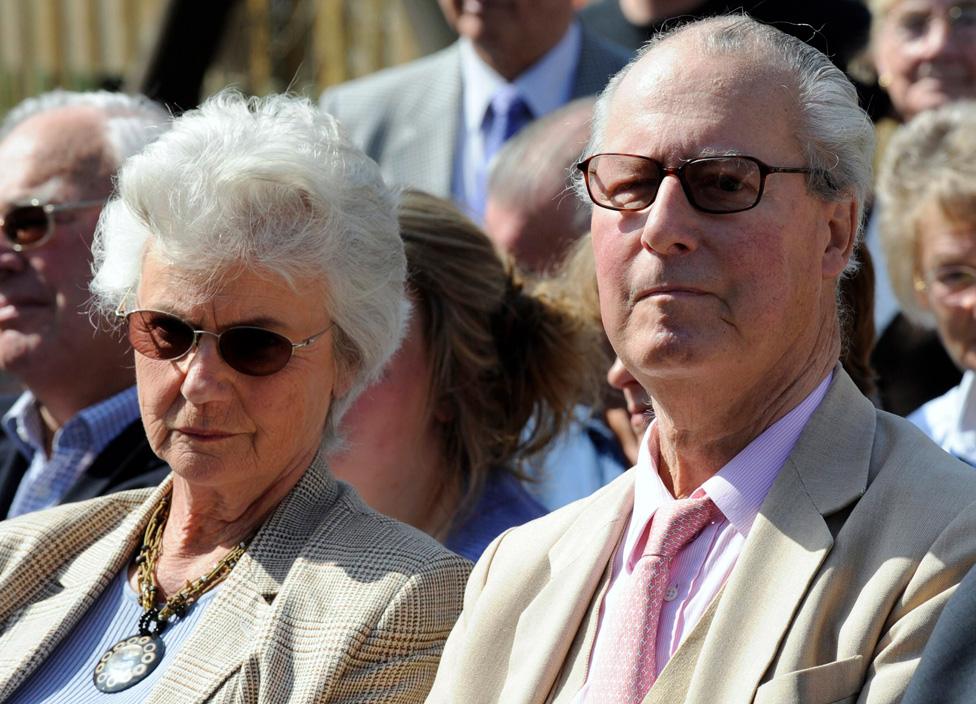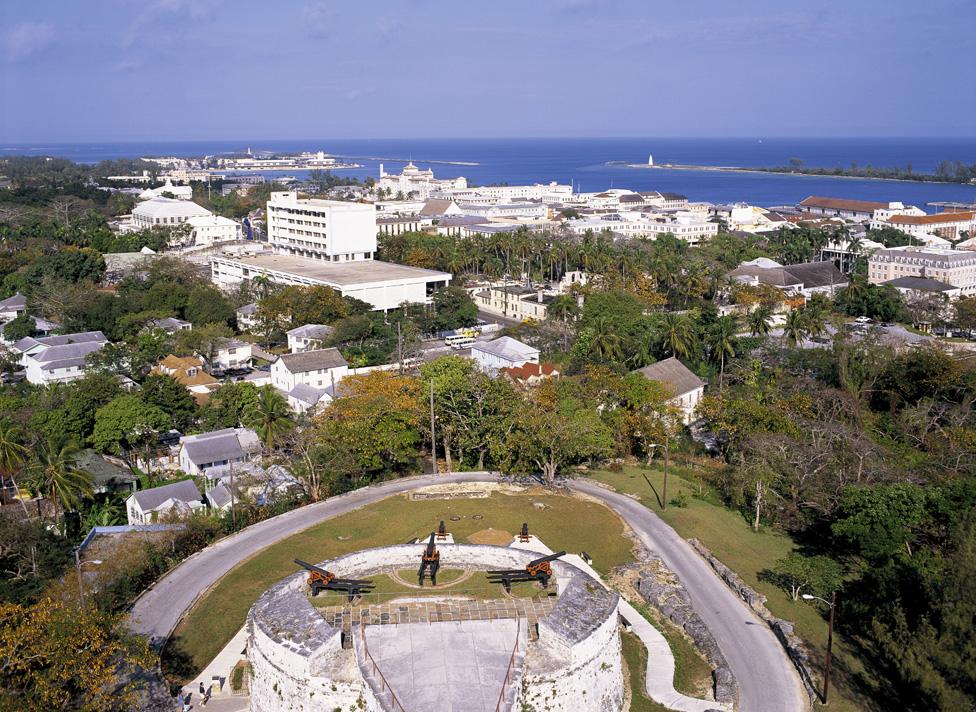Panama Papers: Cameron's father was Mossack Fonseca client
- Published

David Cameron has called for greater transparency in tax havens and a clampdown on aggressive tax avoidance and evasion. But documents leaked from one of the world's biggest offshore specialists, Mossack Fonseca, reveal that his late father used one of the most secretive tools of the offshore trade after he helped set up a fund for investors.
When Ian Cameron wanted to attend a board meeting of Blairmore Holdings, he had to fly to either Switzerland or the Bahamas.
Blairmore, which appears to have been named after the Cameron family's ancestral estate in Aberdeenshire, held its meetings offshore to ensure the investment fund wouldn't have to pay any UK income tax or corporation tax on its profits.
If the meetings had been held in London, then it may have been considered resident in the UK and taxed as a UK company.

Panama Papers - tax havens of the rich and powerful exposed
Eleven million documents held by the Panama-based law firm Mossack Fonseca have been passed to German newspaper Süddeutsche Zeitung, which then shared them with the International Consortium of Investigative Journalists, external. BBC Panorama and UK newspaper the Guardian, external are among 107 media organisations in 76 countries which have been analysing the documents. The BBC does not know the identity of the source
They show how the company has helped clients launder money, dodge sanctions and evade tax
Mossack Fonseca says it has operated beyond reproach for 40 years and never been accused or charged with criminal wrong-doing
Tricks of the trade: How assets are hidden and taxes evaded
Panama Papers: Full coverage; follow reaction on Twitter using #PanamaPapers; in the BBC News app, follow the tag "Panama Papers"
Watch Panorama at 19:30 on BBC One on Monday, 4 April, or catch up later on the BBC iPlayer (UK viewers only)

The leaked documents show that the prime minister's father, who died in 2010, was one of five UK directors who flew to board meetings overseas.
There were also three directors in Switzerland and three in the Bahamas to help ensure the fund would not have to pay UK tax.

Nassau, Bahamas
The leaked documents also reveal how the company used bearer shares, ensuring maximum secrecy.
Bearer shares were widely used in offshore schemes, but they have now been banned in many countries because they can be used to facilitate money laundering and tax evasion.
They can allow investors to hide ownership and transfer assets without a paper trail, as whoever has the bearer share in their possession becomes the legal owner.
Blairmore company documents record how two employees of a bank in the Bahamas were holders of "2,347,280 shares in bearer form" in 2005. This made them the official owners of all Blairmore's investments.
Using bearer shares in this way ensured that the true owners - the wealthy investors in Blairmore Holdings - were kept hidden from view.
Richard Brooks, a former tax inspector who now writes for Private Eye magazine, says some people use the anonymity provided by bearer shares to evade tax.
"A bearer share is a piece of paper saying you own a share of a company. There doesn't have to be any other record other than that piece of paper, which means you can hide your ownership of bearer shares.
"And when it comes to declaring what assets, what wealth you have, what income you have, it really leaves it just to you and your conscience."
It was David Cameron's government that banned bearer shares in the UK in 2015. The Prime Minister has also called for an international crackdown on aggressive tax avoidance and evasion.
However, an investment prospectus published by Blairmore in 2006 states that it will seek to ensure its profits remain beyond the reach of HMRC.
"The directors intend that the affairs of the fund should be managed and conducted so that it does not become resident in the UK for UK taxation purposes. Accordingly, the fund will not be subject to UK corporation tax or income tax on its profits."
Blairmore stopped using bearer shares in 2006. And it still hasn't paid any tax in the UK.